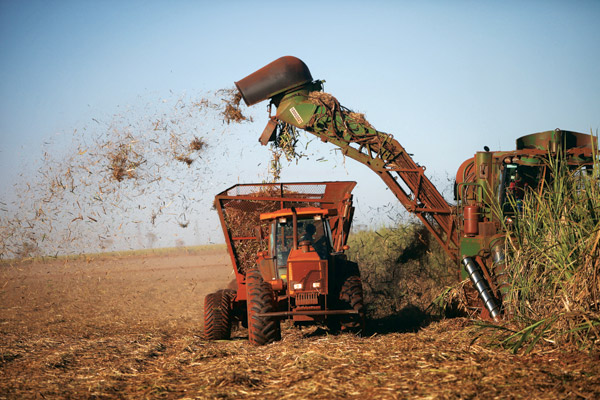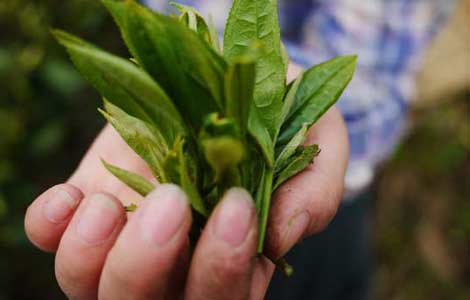Sugar production, consumption still up and down
Updated: 2014-03-02 17:10
By CHRIS DAVIS in New York (China Daily Latin America)
|
||||||||
After five years of fluctuations and spikes in prices, the world sugar market could be in for a period of steady growth. The combination of increases in international trade and production and increases in global consumption make for a sweet outlook. China — after India the largest consumer — and Brazil — the world's largest producer of raw sugar — play an increasingly intertwined and key role in this growth. And a complex one.
Brazil has recently been boosting its shipments to China, according to Bloomberg News. A fleet of sugar-laden vessels bound for China from Brazil's main ports last December carried 234,500 metric tons — almost double the previous month's load of 132,500 tons. Shipments to China had already climbed to a record in October, when, according to customs data, the country brought in 709,873 tons of sugar, putting it on a pace to import more than 4 million tons a year.
 |
|
A machine harvests sugarcane at the Louis Dreyfus Commodities' Biosev Continental farm near the city of Colombia, Brazil in this file photo. Provided to china daily |
"The scale of imports surprised everyone last season and could do so again," said Toby Cohen, a director at London-based Czarnikow Group, which traded 2.4 million tons of sugar last year.
Worldwide, sugar is a $61 billion industry employing 510,000 people in 2,590 businesses, according IBISWorld. In China alone it is a $19 billion sector employing 152,711 people in 294 businesses and growing at a rate of 13.8 percent.
"China has become a major sugar-consuming country along with increases in consumer incomes and the rapid development of many downstream industries," according IBISWorld research. "Growth is being stimulated by increased use of sugar as an ingredient in food and beverage products, as well as an additive to foods and drinks."
The study said that cookies, chocolate, soda, tea and wine are some of the products driving the growth. And there's no let up in sight. "China's sugar consumption is expected to rise by 5 percent to 15 million tons during the current 2013/14 year," said Liu Hande, chairman of the Guangdong Sugar Association.
That translates to about 7 percent of the total world's output, and is good news for producers, as demand for sugar for consumption has been declining and is expected to decline further in developed countries, even as it continues to grow in developing countries, part of a shift in geographic demand.
But not all of the sugar China buys has been for sweets.
"China's increase in sugar imports is a way for the country to prop up prices for Chinese sugar cane farmers," said IBISWorld industry analyst Antal Neville. "China is the world's third-largest sugar cane producer, and the country is actively trying to continue expanding its domestic production."
"But the problem is that production costs for Chinese sugar cane farmers are rising faster than global prices," Neville explained. "This is where the stockpiling program comes in."
China increased sugar cane imports 47.2 percent to 2 million tons in 2011 and an additional 48.4 percent to 3 million tons in 2012, according to Neville. Analysts told the Dow Jones Newswires one plan crafted by the National Development and Reform Commission called for the central government to buy 1 million tons, the Guangxi Autonomous region to buy 600,000 tons and other area authorities to purchase 400,000 tons.
"But the stockpiling hasn't really been that effective at lifting prices, so China may phase out this strategy in the next year or two," Neville said in an email interview.
The stockpiling program attracted more shipments but sugar futures fell 17 percent in London and 18 percent in New York as global supplies outpaced demand. The stockpiling effect was that Chinese futures sagged at a slower rate, dropping 12 percent, Bloomberg reported.
"In the past few years, a lot of the imported sugar [to China] came from Brazil because Brazil is the largest sugar cane producer in the world, accounting for 39.3 percent of global production in 2012, more than double India, the runner up," Neville said. "Brazilian sugar producers sell to the highest bidders, whoever that happens to be."
Still, farmers' yields are expected to continue to grow in response to high prices. "Global sugar reserves will be replenished as a result, but prices will declines in 2014 as production exceeds consumption," an updated IBISWorld report says. "Increased production is expected to boost international trade over the next few years, and global sugar consumption will grow as demand from developing regions increases alongside income and population growth."

 Rio drops protests for Carnival
Rio drops protests for Carnival
 Houston-China bonds deepen with new group
Houston-China bonds deepen with new group
 Citizens mourn victims of Kunming terror attack
Citizens mourn victims of Kunming terror attack
 Putin justifies potential military move in Ukraine
Putin justifies potential military move in Ukraine
 Photos: Kunming rail station violence
Photos: Kunming rail station violence
 Successful businessman gives back to the community
Successful businessman gives back to the community
 Tea with heart
Tea with heart
 Wanting Qu: Chinese-Canadian singer-songwriter launches tour
Wanting Qu: Chinese-Canadian singer-songwriter launches tour
Most Viewed
Editor's Picks

|

|

|

|

|

|
Today's Top News
China to severely punish terrorist attackers
Ukraine mobilizes after Putin's move
Travel the world via the Times Show
China: no one is above the law
China urges solution in Ukraine
Beijing vows tough stance on smog
28 dead in Kunming rail station violence
China rejects US GM corn shipments
US Weekly

|

|






